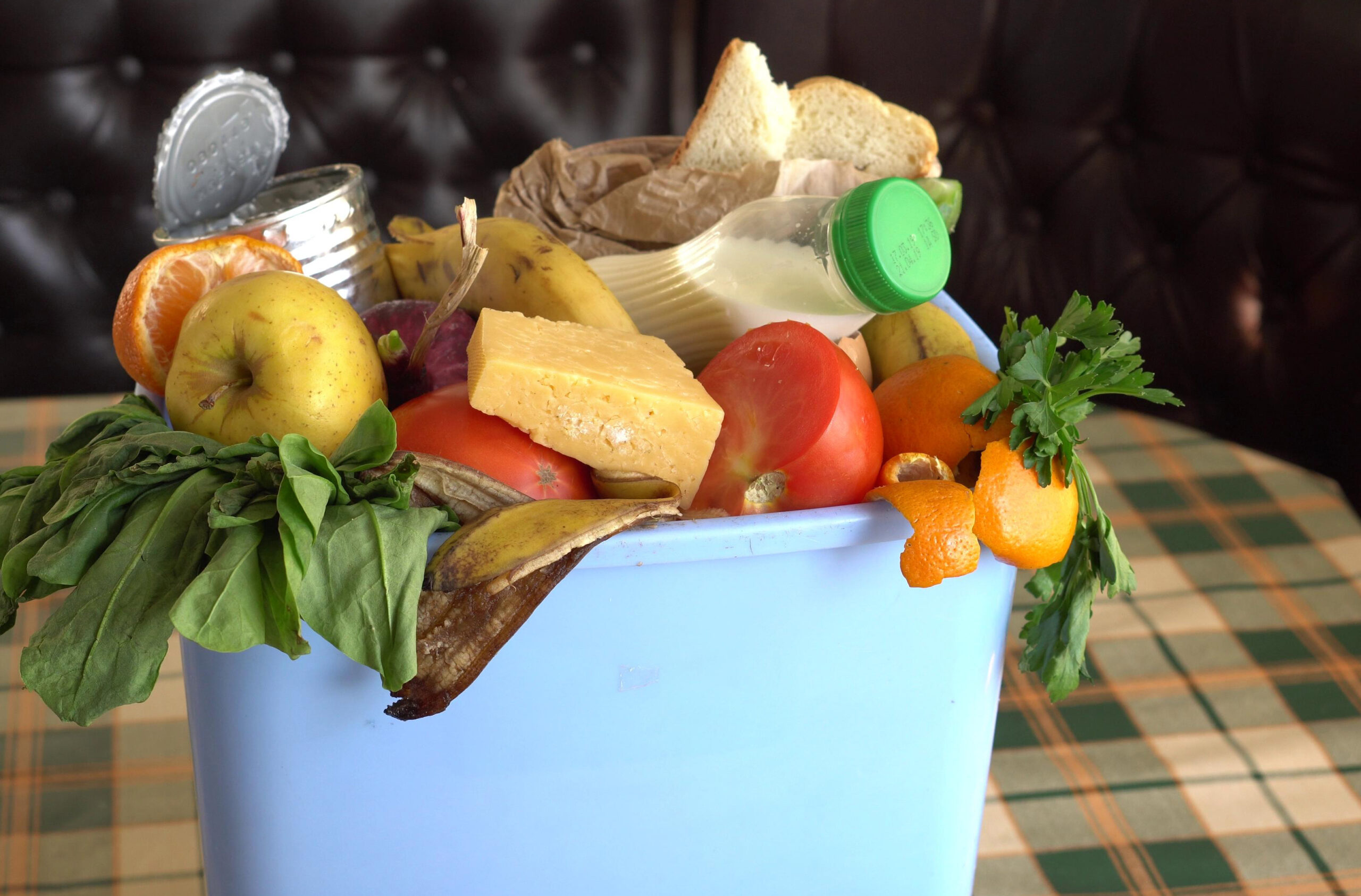In the days and weeks following holiday gatherings, many households are cleaning out their fridges and pantries – tossing spoiled food and temptations that might derail New Year’s resolutions. One of these goals may be to eat healthier, more environmentally-friendly meals and waste less. Not only is food waste money squandered, but when rotting in landfills it also generates the greenhouse gas, methane.
How can households do a better job of wasting less food? Preparing meals the family is sure to eat helps, and taking leftovers for lunch at work or school is also a good choice to use up extra food. Cooking staples, like roast chicken, that can be transformed into several different dishes prevent leftover burnout that leads to food waste.
According to a recent New York Times report, tackling food waste may be one of the best ways to combat climate change. In the U.S., food waste is responsible for twice as many greenhouse gas emissions as commercial aviation. In addition to wasting less food at home, restaurants are encouraged to donate edible food, and many communities have created community fridges where unneeded food can be dropped off for those in need.
Older adults who may have experienced food shortages during their lifetime are a wonderful resource to teach families how to stretch the food budget and waste less. Households currently account for 39 percent of food waste in America, more than restaurants, grocery stores or farms. This means that change needs to start happening at home to improve kitchen habits, waste less and recycle more.
Tips to Waste Less
- Inventory the fridge and pantry before grocery shopping.
- Plan out meals for the week before shopping.
- Avoid impulse food purchases.
- Freeze leftovers.
- Try reusable containers to keep food fresh longer.
- Compost food waste.
Cooking at home more, and wasting less food, will not only save money and help protect the planet but eating out less is often healthier. Using a few time-saving tools like an air fryer and choosing simple meals with easy clean-up can help encourage good habits in the kitchen. Make food preparation a fun activity by enlisting the family or a group of friends, playing some energetic music, or listening to a podcast while you food prep for the week helps make cooking a joy, rather than a mundane task.






Add Your Voice
0 Comments
Join the Discussion